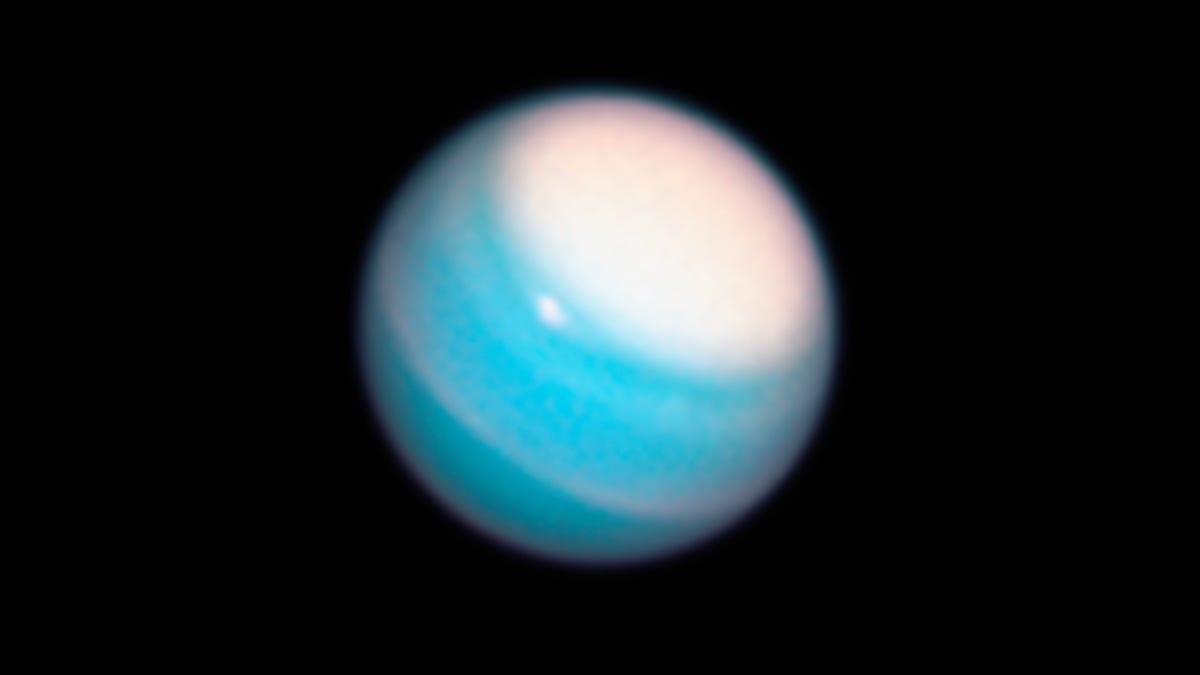Scientists Want to Probe Uranus Within the Next Decade
A new report suggests a multiyear orbital tour to better understand ice giant planets.

Wide Field Camera 3 photo of Uranus revealing a cloud cap on the north pole.
A report from the National Academies of Sciences, Engineering, and Medicine this week said a probe of Uranus should be the highest priority. Yes, I laughed when I read the report, too.
The proposed mission is called the Uranus Orbiter and Probe and would shed some light on the mostly unexplored ice giant. The last spacecraft to pass Uranus was Voyager 2 in 1986. Other missions have been proposed since then, but none have been approved. The new report says a launch for this mission within the next decade is viable with current launch vehicles.
The report also outlines another high-priority mission to search for evidence of life on Enceladus, one of Saturn's moons. The mission would include a craft landing on the moon.
"This report sets out an ambitious but practicable vision for advancing the frontiers of planetary science, astrobiology, and planetary defense in the next decade," said Robin Canup, assistant vice president of the Planetary Sciences Directorate at the Southwest Research Institute, and co-chair of the National Academies' steering committee for this survey.
The report also includes a discussion on the importance of diversity, equity, inclusivity and accessibility to the success of planetary science, a call to enhance planetary defenses against near-Earth objects -- like comets and asteroids -- and other exploring and discovery programs. Some of the other exploratory programs include missions to Saturn, Mars and Venus.

